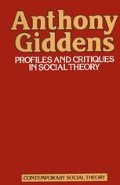Abstract
Ten years is a long time in sociology. Less than a decade ago, Frank Parkin published Class Inequality and Political Order, a work which deservedly became well known.2 The book made some important contributions to the then existing literature on class analysis. At that time, the sociological literature was dominated by a particular viewpoint about the nature of classes and class conflict. The entrenched liberal establishment of orthodox sociology in the USA and Europe had elaborated a version of class theory associated with the then dominant notion of ‘industrial society’. ‘Class’ for these writers had become either replaced by ‘stratification’, or regarded as one aspect of stratification among others, and not necessarily the most important. Class conflict, for the various proponents of the theory of industrial society,3 had been drained of any threatening qualities by the progressive incorporation of the working class within the social and political order. The future appeared to be set by the progressive expansion of liberal freedoms within a rapidly maturing industrial system. Many of those who took such a view were influenced by the ideas of Max Weber, understood in an appropriately bowdlerised form. The elements of Weber appearing in their works were not those of the sombre prophet of a numbing all-encompassing world of bureaucratic domination.
A discussion of Frank Parkin, Marxism and Class Theory: A Bourgeois Critique (London: Tavistock, 1979).
Preview
Unable to display preview. Download preview PDF.
References
Frank Parkin, Class Inequality and Political Order (London: Mac-Gibbon & Kee, 1971).
For a fuller discussion and characterisation of the theory of industrial society, see my ‘Classical social theory and the origins of modern sociology’ in this volume; cf. also John Scott, Corporations, Classes and Capitalism (London: Hutchinson, 1979).
Parkin, Class Inequality, p.9.
Ibid.
J. H. Goldthorpe, ‘Social stratification in industrial society’, Sociological Review, Monograph No. 8, 1964.
Parkin, Class Inequality, p.18.
Ibid, p. 27.
See also Parkin, ‘Social stratification’, in Tom Bottomore and Robert Nisbet (eds), A History of Sociological Analysis (New York: Basic Books, 1978) pp. 608ff.
Cf. my Central Problems in Social Theory (London: Macmillan, 1979) ch. 2 and passim.
‘Postscript’ to The Class Structure of the Advanced Societies (London: Hutchinson, 1980).
Author information
Authors and Affiliations
Copyright information
© 1982 Anthony Giddens
About this chapter
Cite this chapter
Giddens, A. (1982). Classes, Capitalism and the State. In: Profiles and Critiques in Social Theory. Contemporary Social Theory. Palgrave, London. https://doi.org/10.1007/978-1-349-86056-2_13
Download citation
DOI: https://doi.org/10.1007/978-1-349-86056-2_13
Publisher Name: Palgrave, London
Print ISBN: 978-0-333-32902-3
Online ISBN: 978-1-349-86056-2
eBook Packages: Palgrave Social & Cultural Studies CollectionSocial Sciences (R0)

